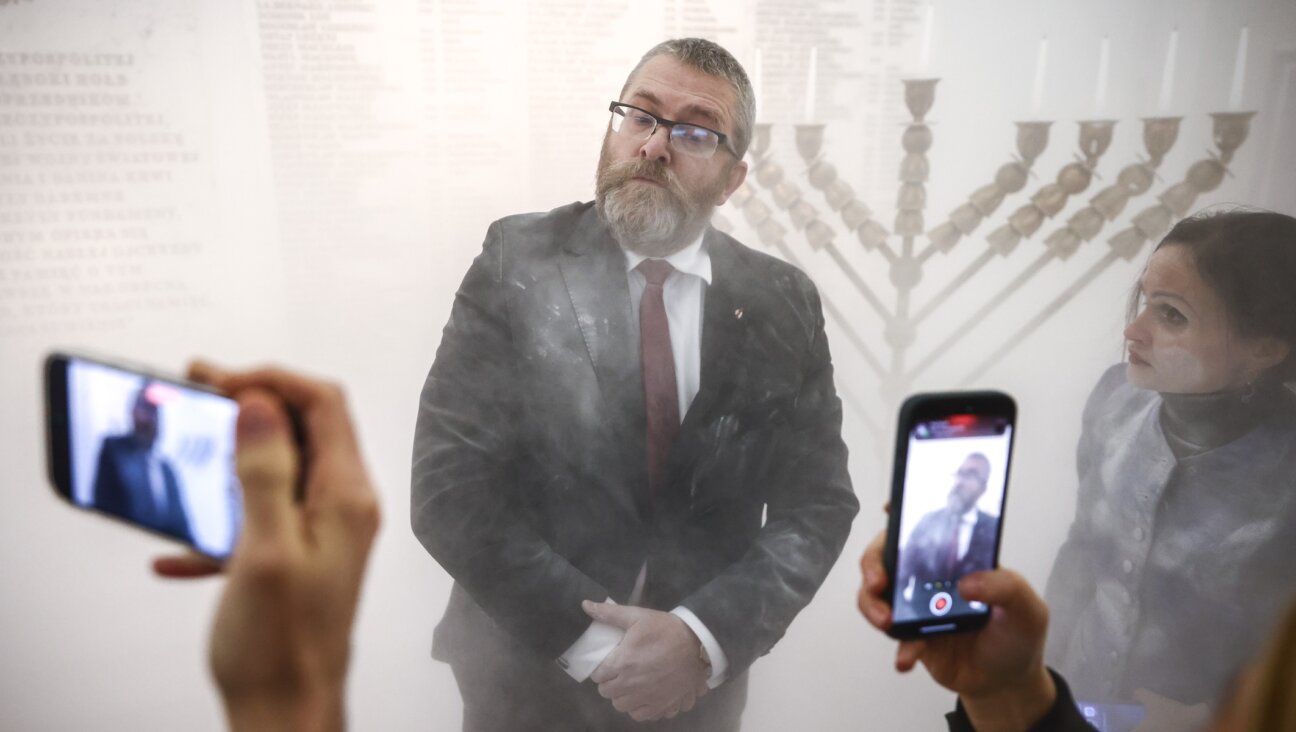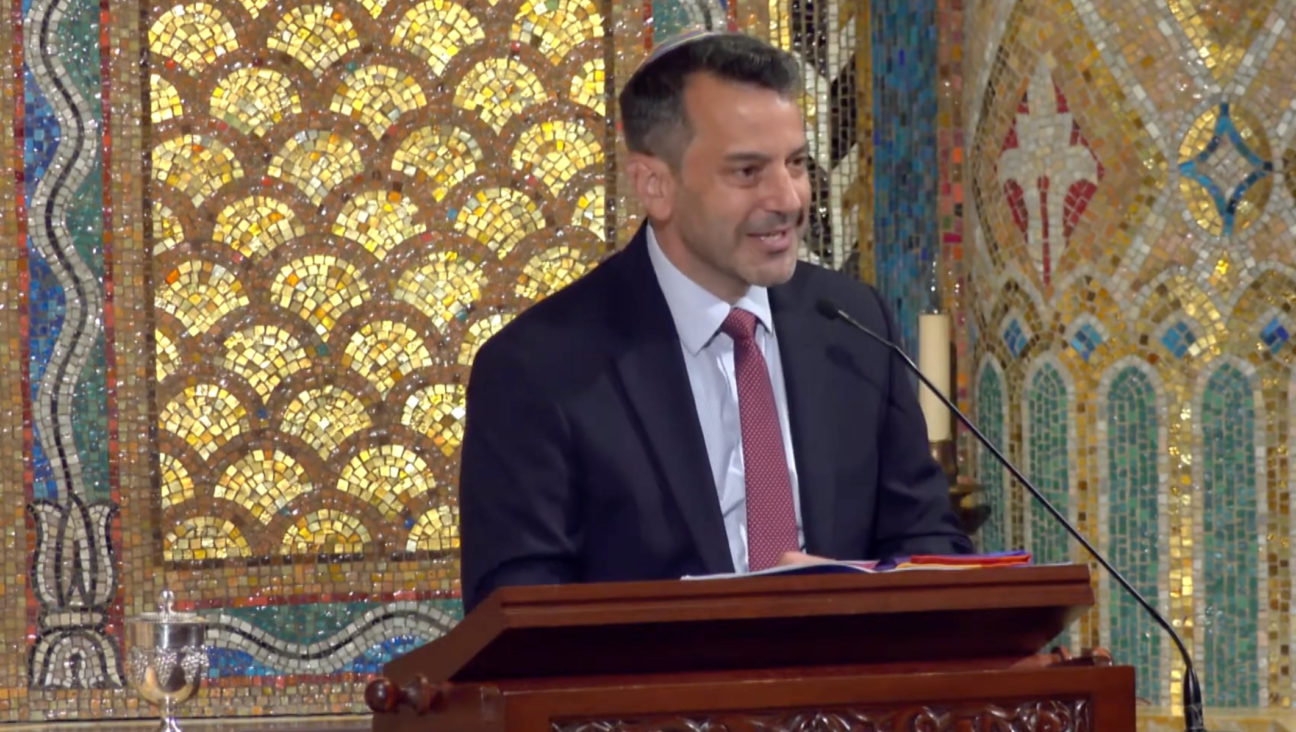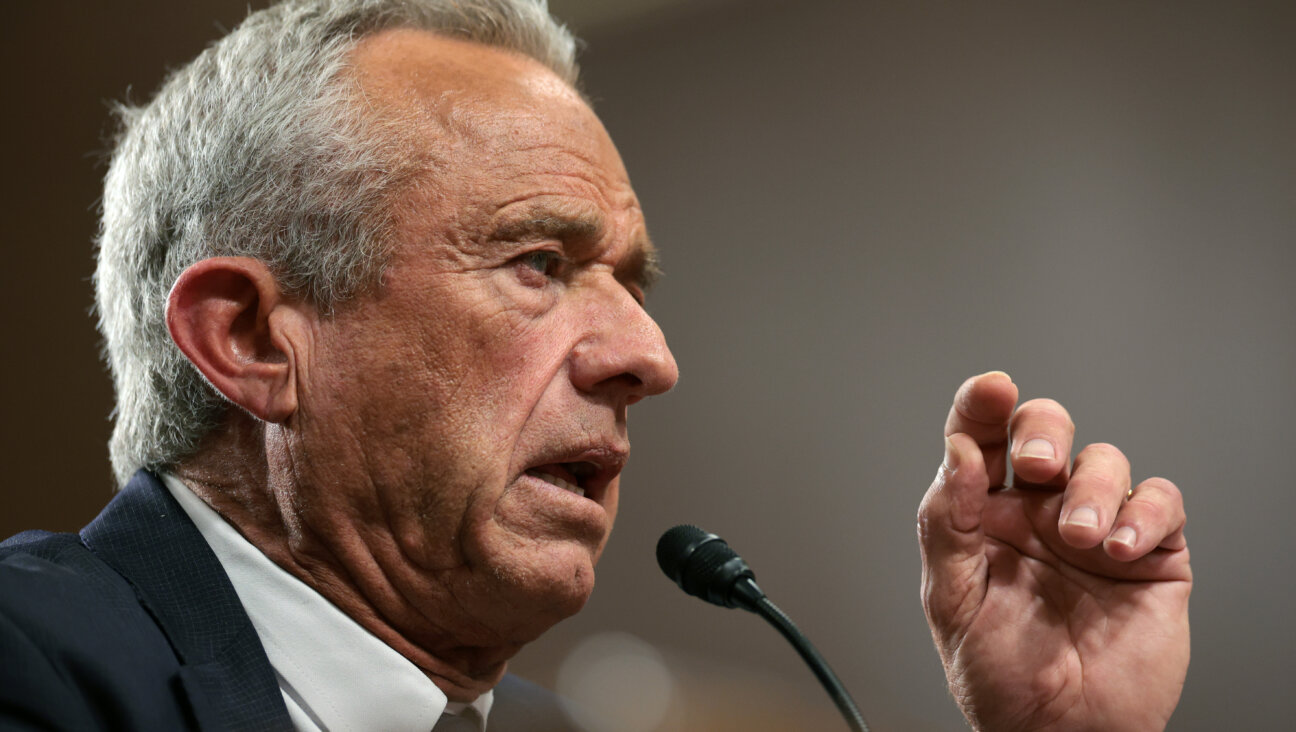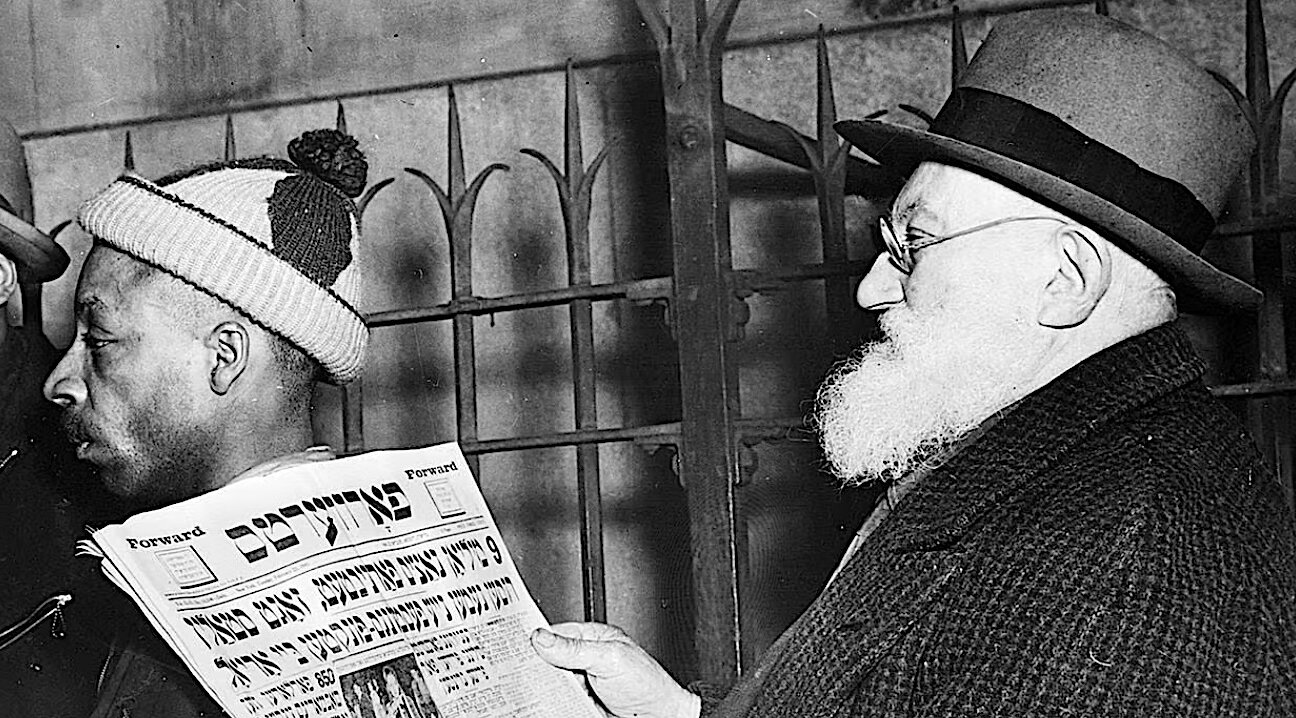How Jews Can Reclaim Our Country From The Gaslighter-in-Chief

Image by Laura E. Adkins
Here’s a fun exercise: do a Google search of “Trump just kidding.”
My last attempt returned over one million results, ranging from “Jamie Dimon Says Trump Was Just Kidding About Kicking 11 Million Immigrants Out of the Country” to “Hillary Clinton in jail? Just kidding, says Donald Trump’s campaign manager.”
It’s no longer news that Trump rose to power on the abuse and misuse of language, threatening his opponents, mocking the marginalized and deliberately misrepresenting the truth.
But about those misrepresentations — are they, in fact deliberate? It’s become common for Trump’s surrogates to claim that Trump doesn’t intend to say the outlandish stuff he plainly has said. By now, the pattern is clear: Trump says something outrageous, and his apologists claim he didn’t really mean it. In other words, the US now has its own Gaslighter-in-Chief.
Ultimately, this leads to a feeling of profound unease and instability. It’s not new for politicians to lie. But lies are built on narratives. Even as they betray reality, they convey meaning. The last Bush administration built an entire war on a fight against imaginary weapons, supported by imaginary evidence. But even as we questioned it, we knew the story — the Bush crew wanted a war, and they created a narrative that intended to make it a reality.
Trump’s words are so destabilizing not because they are post-truth, but because they are post-intention. When caught making an outlandish statement, Trump and his team simply shift the meaning, day-by-day, moment-to-moment. You don’t like what he said? Well he didn’t really mean it. Or he didn’t really say it. Or maybe he did. What are you so worked up about?
This crisis of language — in which words mean one thing at one moment, and then nothing the next — is a crisis not just for the country and the world. It is also an acute threat to Jewish culture and tradition.
Jews are people known for living in the world of words — rabbis and lawyers and lyricists. For most of our history, Jews couldn’t rely on an empire to ground our reality. What we had was our words. Absent the stuff of power (and the power of stuff), Jews created meaning through language.
To live in a land where meaning is elusive is to live in a profoundly non-Jewish land.
This is not an indictment of Trump using language to create his own narrative. That is actually a very Jewish thing to do. The rabbinic imagination looks at the Torah’s demand for “eye for an eye” retribution, and recreates it as a call for equal justice, no matter one’s station or standing. Emma Lazarus transforms the meaning of a colossal statue, using poetry to declare that Lady Liberty’s torch lights the way for refugees and impoverished immigrants. A lyrical artist like Stephen Sondheim turns socialites into clowns (“Send in the Clowns”), and fairy tale creatures into modern neurotics (“Into the Woods”). The cliché is right: art implies artifice.
The problem with Trump is that his artifice isn’t artful. There’s no consistent narrative, no clear voice behind the shouting.
When Groucho Marx said he “shot an elephant in his pajamas,” he knew that the punch-line would be that the elephant itself was in his pajamas. The even bigger joke was that a Jew would be shooting an elephant. To tell a joke, you have to know that it’s a joke. Take issue with Trump’s racist and xenophobic rhetoric? The joke’s on you. Even though it’s not really a joke. Until tomorrow, when it is. All the GOP’s elephants will line up to tell you so.
Salena Zino wrote in the Atlantic that Trump’s supporters “take him seriously, but not literally.” But what about Trump himself? How convenient that right-wing America, fueled by an evangelical movement that relentlessly advances bleakly literal readings of Biblical text, suddenly found its Midrashic imagination just in time to enable an impetuous Twitter troll.
In what may be the platonic ideal of a Trump tweet, the president-elect responded to China’s confiscation of a US drone by calling the act “unpresidented.” Commentators eagerly took the Rorschach test: the tweet was either evidence of Trump’s stupidity or his cleverness, a gaffe or a joke, clumsy foolishness or wry criticism. What did it really mean? Who knows? We’re on our own.
In the “unpresidented” time of President Trump, we need to take up that challenge. The world needs the particular Jewish aptitude for language. Let’s make a commitment to have clear and respectful conversations— to ask others, and ourselves, if our intention is clear when we say what we say. To ask whether our speech will be a creative or destructive force.
As we all face the morass of mushy and morally repugnant language coming from the most powerful men in the nation, it’s time. The hour calls for Jews to step forward with clear and principled Jewish words. No kidding.
A message from our Publisher & CEO Rachel Fishman Feddersen

I hope you appreciated this article. Before you go, I’d like to ask you to please support the Forward’s award-winning, nonprofit journalism so that we can be prepared for whatever news 2025 brings.
At a time when other newsrooms are closing or cutting back, the Forward has removed its paywall and invested additional resources to report on the ground from Israel and around the U.S. on the impact of the war, rising antisemitism and polarized discourse.
Readers like you make it all possible. Support our work by becoming a Forward Member and connect with our journalism and your community.
— Rachel Fishman Feddersen, Publisher and CEO
























